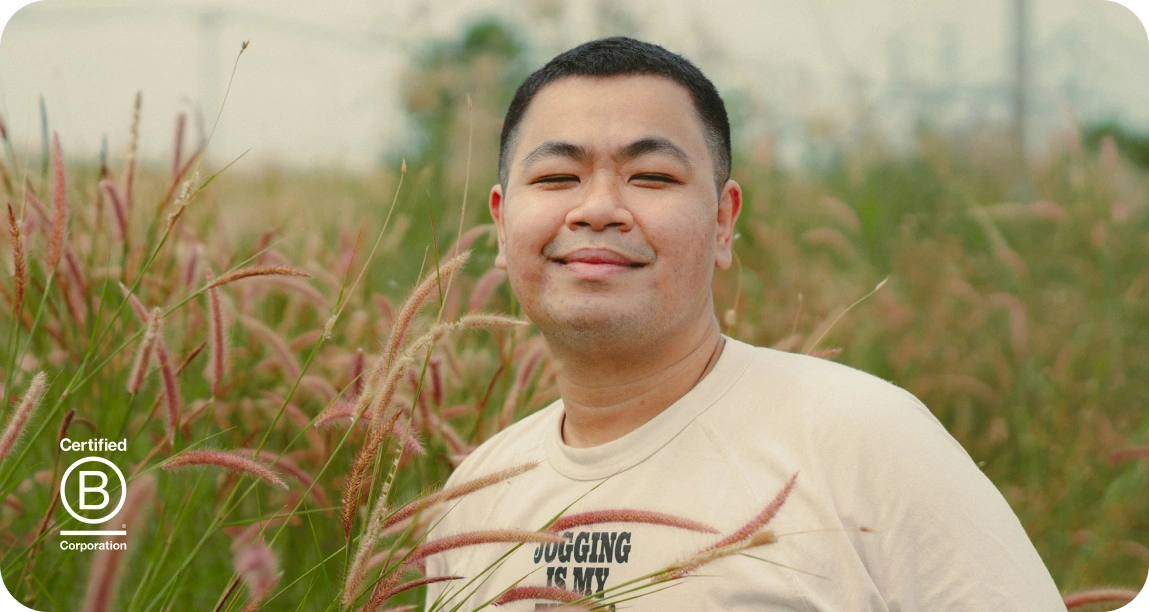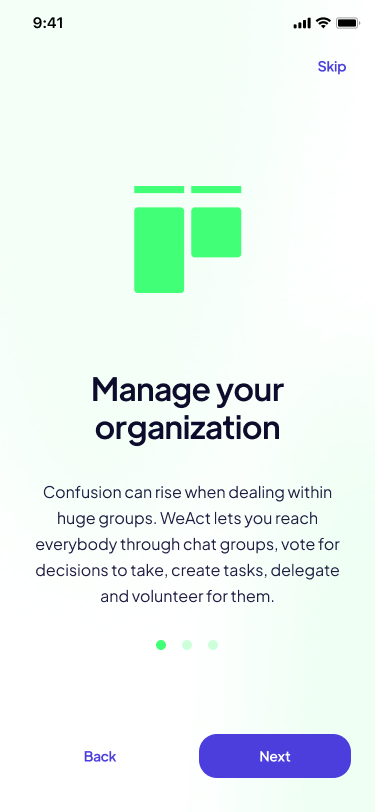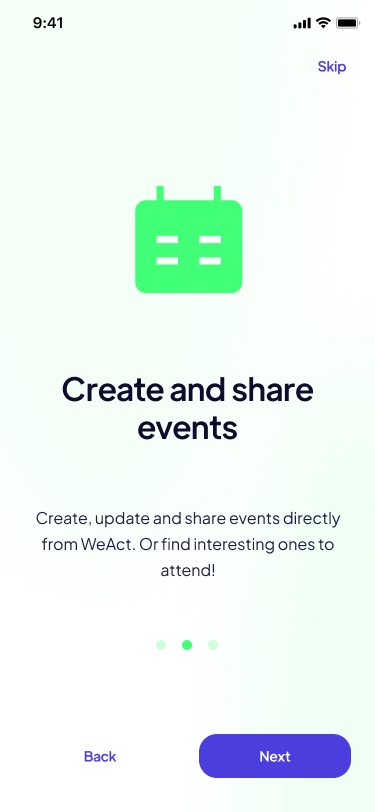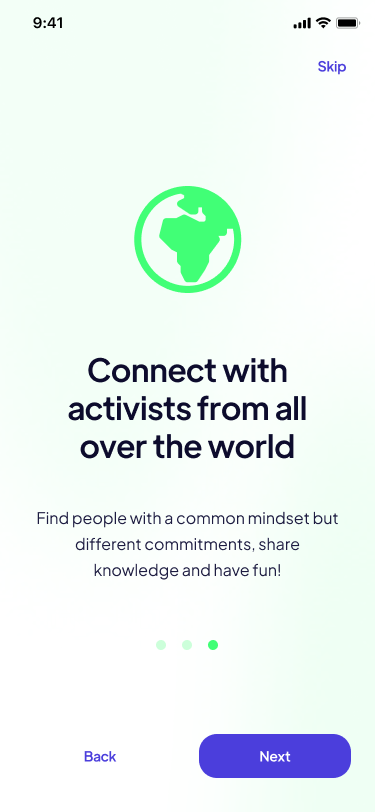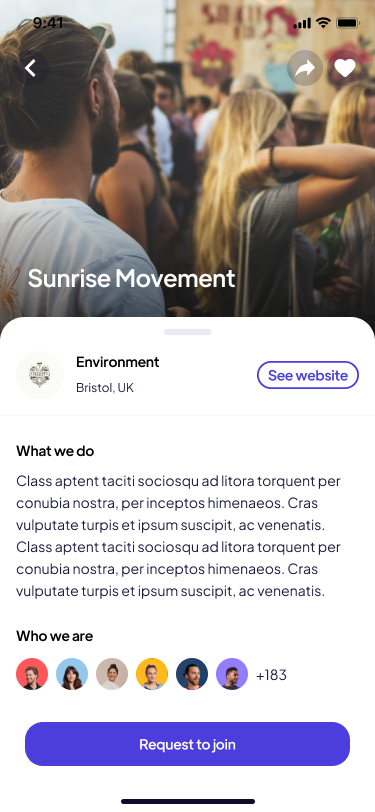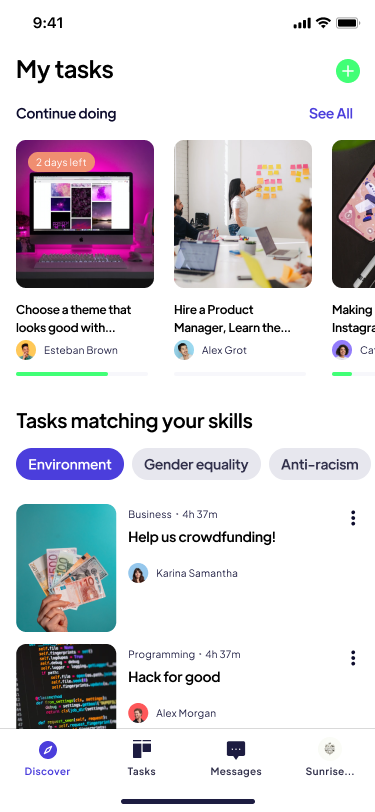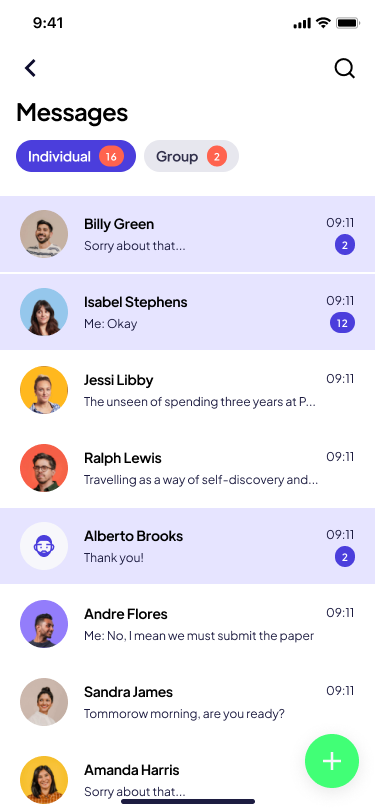A free training program for training CS reps with the skills, tools, and knowledge to delight customers and resolve issues.
Three years ago Raymond Laracuenta, CEO of Oblivion Software, started his journey with We Act. We Act Is a social collaboration platform for activism. The chat app is designed to amplify grassroots activism, providing social movements the tools for more effective ways to communicating and organizing. In this interview, Raymond has shared the story since the beginning, what's next and how Work for Impact has helped We Act grow in the last few years.
https://youtu.be/O4T0mkRwWjk
Raymond, tell us how did it all started...
We created We Act about three years ago after interviewing a few hundred activists globally about how they approach activism from a technology perspective. We had the hypothesis that most activist groups were using multiple tools to coordinate their actions, both online and in-person, and their interviews kind of bore that out. The average activists will use half a dozen different tools to run their groups, and as they grow, as they scale, the ability to keep everyone on the same page, onboard them, focus on the message, and be effective became more of a challenge.
After those interviews, we began to design something that we call kind of the all-in-one activist platform. It allows you to have conversations and evolve those conversations into projects and track those projects across groups and across hubs and even internationally. We did this ultimately because we felt that activists working harder than they had to, and we wanted to help them work smarter and more effectively and be able to scale their groups and also for those who support and sponsor them to give them a better chance on realizing their objectives.
As donors become more careful about how they donate money, especially large donors, they want to get a sense that the group is really focused on an outcome, and they have a method to get to that outcome, and they can report back they're achieving their goals.
In a way, we gave a little bit of an enterprise spend activism but giving them something that they can use to set goals and meet those goals, learn from mistakes, and move forward.
What issue are you trying to solve with We Act?
Ultimately, the issue that we're solving with activism is converting enthusiasm and awareness into real change. We have another term that we use within the group called Last Mile Activism.
That's what happens when people are aware of an issue and you see real change. And that means legislative change, regulatory change behavioral change at the community level and at the corporate level.
So the problem we're solving is, how do you get to that Last Mile? How do you go from high levels of awareness, high levels of social support on social media platforms into driving change?
We felt the way to do that was a much more predictable method that could be duplicated hub to hub, chapter to chapter, versus just relying on social media and attempting things that might not work, trying something else, and not being able to share those learnings. If you go back to my original kind of construct of the average activist has six different applications.
It's very difficult to harness organizational knowledge and replicate it across an organization. Now that may be in hundreds of thousands of members when you're on 5 6 different platforms.
We started building We Act three years ago, we've incorporated group conversations into the ability to manage tasks, the ability to crowdsource.
We're now at a point where we're going to be releasing version one. This month we released a mobile for iOS and Android we'll be releasing a browser-based version of We Act over the summer.
A Smarter Way to Build Your Global Team
What's next?
Some exciting developments have happened over the past couple of months in terms of the long-term and even near-term architecture of We Act.
For those of you who might be aware of blockchain technology has been a big deal. Crypto is a big deal for a variety of reasons, but it really hasn't found its way into this activism or even collaboration space for the most part.
We're very excited to announce a new partnership with Dfinity Foundation, where we will be porting We Act to the Internet computer without going to a lot of detail and a lot of technical issues. What the Internet computer allows us to do is increase the security and portability of We Act as well as a decentralized technology, and provide interesting functional capabilities like group ownership, group governance, token, the ability to vote on capabilities of We Act.
As an organization using We Act on Dfinity, you'll have a new set of capabilities, even higher levels of security. And we're really excited about that work.
We're just beginning the partnership now. We anticipate releasing an Alpha version of We Act running on the Internet computer roughly end this summer, early fall. And on our website, we will have information about the roadmap of We Act in general and this particular branch of We Act on the Internet computer.
How a start-up like yours could scale and grow through the help of freelancers?
We are bootstrap, which means my partner and I are building this company on our own finances. We needed to be creative about how we staff and when we staffed. A couple of years ago, I met Geoff through probably an online conversation, the time it couldn't have been better for us because Work for Impact has provided us the ability to hire really top-flight skills anywhere in the world as we need it.
Manage those skills is really just a push button. You post a job, somebody answers it, you hire them. The whole process is highly automated, and we're hiring people that we would never have found, never would have found through traditional channels.
Now I've worked with people all over the world: graphic designers, developers, copy editors, bloggers... We just go there, post a position, and we get lots of interest and lots of enthusiasm. And I think that's really key for startups, especially founders who are bootstrapping, which is more and more the common path.
For the traditional model, the hiring process is time-consuming, it's expensive, and in most cases, the work and the capital don't line up. This means you'll bring somebody on and you really don't need somebody permanently, so they're not going to hang around.
If you go into a freelance approach, you bring them in when you need it. If it's just in time skills, you bring those skills in, you work with them, and then you're done. And if you need the people to come back, they're happy to come back, pick up where they left off, or start something new.
What are the traits you're looking for when you hire freelancers?
As a startup in a small company, we're looking for people who are clearly, self-starters, very adaptable to the situation.
They don't need a lot of information to get going, and they become a partner very quickly. I think freelancers that have a partnership mentality will do really well in general on this platform and working with startups. Freelancers who are a bit more transactional, and there's nothing wrong with that, I think are not as attractive because you have to lead them every step of the way as to what they need to do next.
And really what you're looking for in a good freelance or somebody not only possesses the technical or artistic skills that you're looking for but can quickly contextualize them to what they're doing in your company.
They become part of your company for however long they're with you very quickly. And the relationship is very, very organic. I think if you're going to participate in a platform like this, work with startups that are particularly trying to do something in the Social Good area, they really do need as much of that kind of contextual affiliation to what you're doing as they need the skills that you possess.
I think for me, it's very easy to hire those kinds of freelancers, and I think we've been pretty successful at doing that over the past couple of years.
One last message for our community?
Starting in the middle of June, check out we Act Chat. We'll post links for version one of the We Act application again. It will be available in iOS Android formats, and there'll be information on the site.
You can download it, set it up. We also can help you if you have any issues with setting up. If you just contact us on the website. Later in the month, early July will be launching a new WeAct.chat website, which will be completely redesigned. It will have our product roadmap, and it will also be a special section to talk about our Dfinity relationship, what we're doing with the Internet computer.
And if you're interested in being on the bleeding edge of that technology, there's a signup form where you can participate in early Alpha testing. We Act on the Internet computer starts late summer, early fall. And again, more information will be available on the website.
Work for Impact supports brands and organizations for a better world
We believe in setting goals that benefit everyone, not just ourselves. By working with socially and environmentally responsible organizations and nonprofits, we want to promote projects that have a positive impact on the world as a whole. We only succeed when everyone succeeds. If youd like to know more about us, sign up for free or book a meeting to know more about how you can scale your team.
Did you like this article? Read more from the series Work for Impact Meets here.



